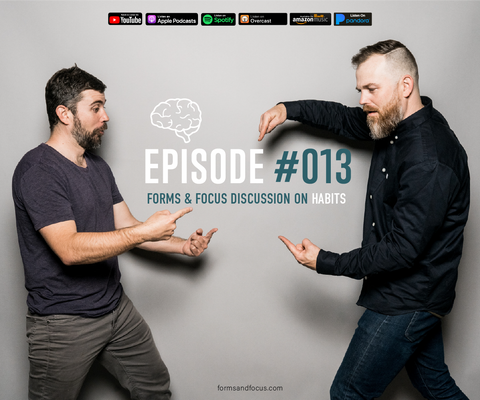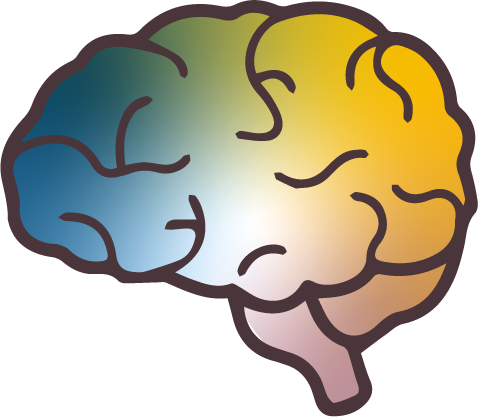
#13 Forms and Focus Discussion on Habits
SUMMARY
It’s time to create the habit of creating new habits.
We first make our habits, and then our habits make us. People struggle to develop habits that benefit themselves. In this episode, we talk about the Cue-Routine-Reward Feedback Loop and how you can form new habits to accomplish your dreams.
At Forms & Focus, our mission is to increase your focus so you can accomplish your dreams. Many of us have dreams and goals. What keeps us from them is our inability to remove distractions and focus. We will accomplish our mission by providing you with guided forms that manifest radical focus.
0:00 - Intro
0:55 - Problem - We have a bad habit of not making good habits.
6:30 - Solution/Habits for better focus.
LISTEN TO EPISODE
WATCH EPISODE
SHOW NOTES FOR EPISODE #12
PROBLEM/FACTS
- Take it back - Palvo’s Dog (hear the bell, the dog salivates).
- A recurrent, often unconscious pattern of behavior that is acquired through frequent repetition.
- Psychologists at (MIT) made a landmark discovery in 1999 of a cue-routine-reward feedback loop that Charles Duhigg later coined “the habit loop” in his book “The Power of Habit.”
- Cue. You experience a stimulus — a trigger.
- Craving. The stimulus causes you to desire a particular outcome that you find rewarding. It motivates you to act.
- Response. You engage in behaviors, thoughts, or actions you take to get that outcome.
- Reward. The outcome occurs and you feel a sense of reward as a result, satisfying your craving. The pleasure or relief you experience reinforces the cue, making the cue even better at triggering craving next time. That’s why it’s an endless loop.
SOLUTION/HABITS
- The FOGG behavior model: Behavior happens when: There's motivation, there is Ability (It can't be impossible), There's a trigger
- Training yourself to fire up positive emotions when starting a new habit is a way to make it automatic more quickly. (feel better versus stop eating bad).
- If there is no emotion attached: If you make the behavior or task more simple, is much easier to do when motivation is wavering.
- If you plan to adopt a new habit, think about the very specific sequence of events to execute that habit.
- In the first 8 hours of being awake you have a norepinephrine, epinephrine, dopamine tends to be elevated.
- About 9-14 hours after waking, because of the circadian shifts in biology. Focus on more relaxing habits.
FIND US AT:
Podcast Available Everywhere
https://formsandfocus.com/
https://www.instagram.com/formsandfocus/
https://www.tiktok.com/@formsandfocus
#forms #focus #dream #habits

Comments (0)
There are no comments for this article. Be the first one to leave a message!